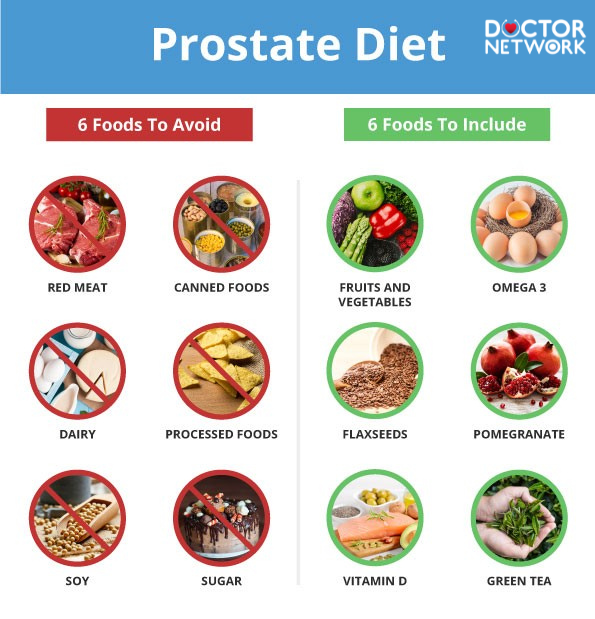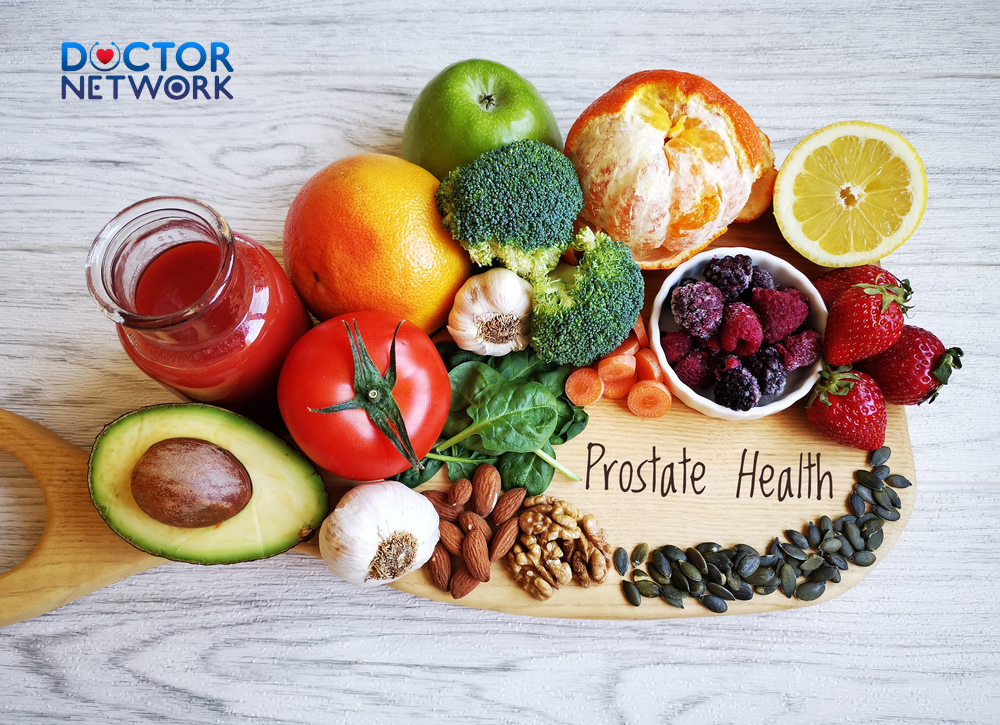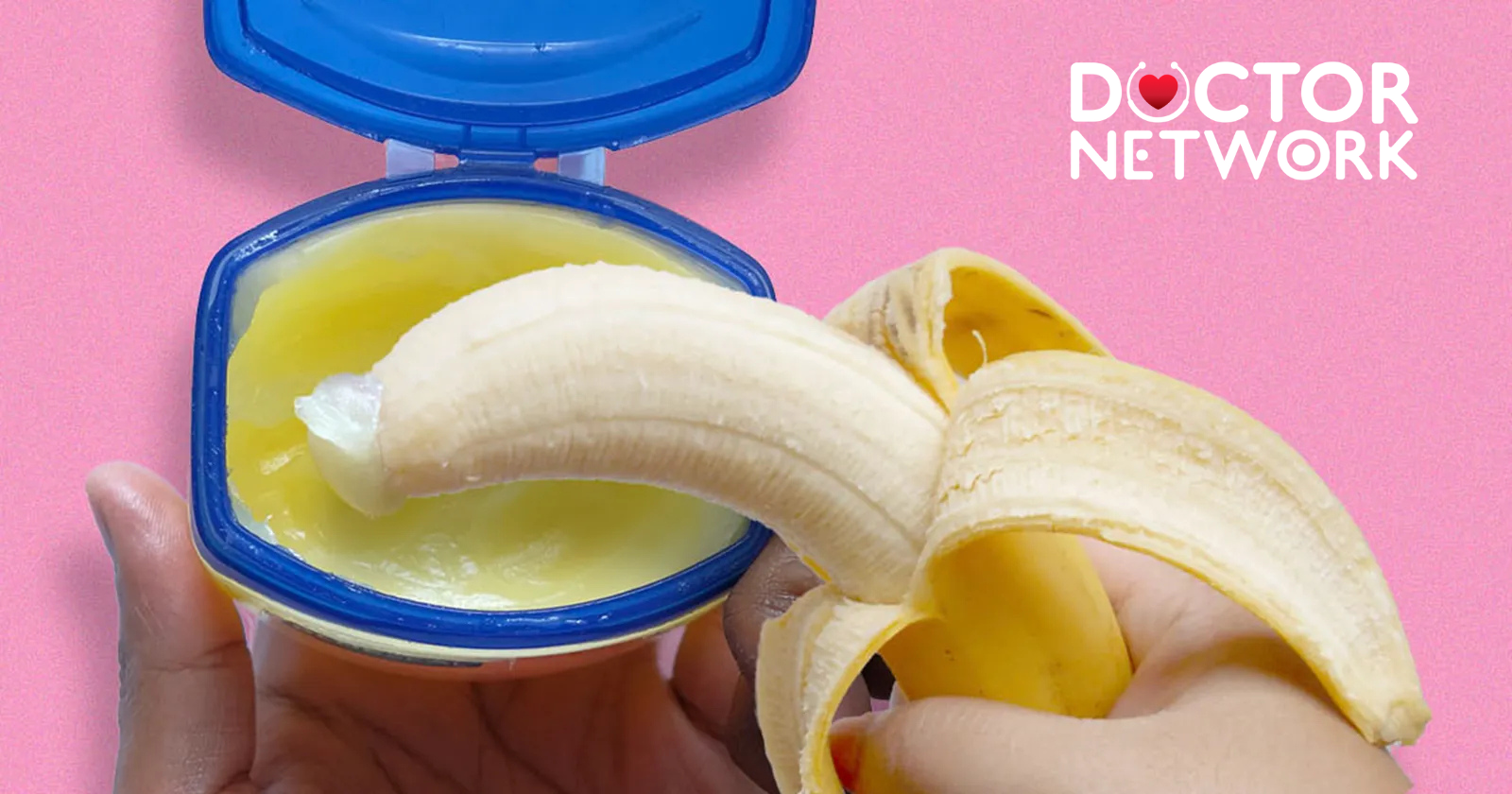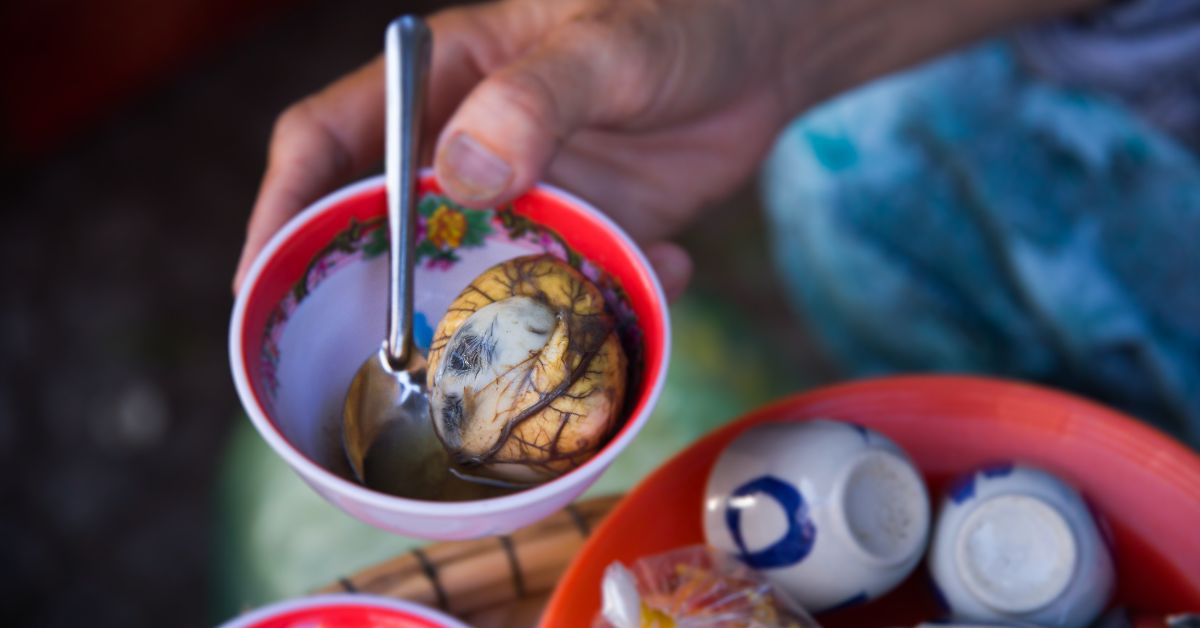“Ten Worst Foods for Prostate Health” Discover the 10 worst foods for prostate health and why avoiding them can support better urinary and reproductive function.

Top Foods to Avoid for Better Prostate Health
Understanding Prostate Health and Diet’s Role
Dietary choices significantly impact prostate health, with certain foods accelerating inflammation, hormonal imbalances, and cellular damage that contribute to benign prostatic hyperplasia (BPH), prostatitis, and prostate cancer. The walnut-sized prostate gland, located beneath the bladder and surrounding the urethra, plays a crucial role in male reproductive function by producing prostatic fluid that nourishes and protects sperm. Understanding which foods harm this vital organ empowers men to make informed nutritional decisions that support long-term urological and reproductive wellness.
This comprehensive guide examines the ten most detrimental food categories for prostate health, exploring the biological mechanisms through which these dietary culprits promote disease progression. We’ll analyze how specific nutrients and compounds trigger chronic inflammation, disrupt hormonal equilibrium, generate oxidative stress, and compromise cellular integrity within prostate tissue. Additionally, this article provides evidence-based dietary recommendations and holistic lifestyle strategies to optimize prostate function and reduce disease risk.
What is the Prostate Gland?
The prostate gland serves as a cornerstone of male reproductive anatomy, secreting approximately 30% of seminal fluid volume while regulating urinary flow through its strategic positioning around the urethra. This exocrine gland consists of multiple zones, including the peripheral zone where most prostate cancers develop, the transition zone associated with benign prostatic enlargement, and the central zone surrounding the ejaculatory ducts. Common prostate disorders include benign prostatic hyperplasia (BPH), affecting over 50% of men over age 60, chronic prostatitis causing pelvic pain and urinary dysfunction, and prostate adenocarcinoma, the second leading cause of cancer death in American men.
The Crucial Link Between Diet and Prostate Health
Nutritional factors profoundly influence prostate pathophysiology through multiple interconnected pathways involving inflammatory cascades, hormonal modulation, oxidative damage, and epigenetic modifications. Specific macronutrients and bioactive compounds can either promote or prevent prostatic inflammation by regulating cytokine production, nuclear factor-kappa B (NF-κB) activation, and prostaglandin synthesis. Dietary patterns also affect circulating levels of insulin-like growth factor-1 (IGF-1), testosterone, dihydrotestosterone (DHT), and estrogen metabolites, all of which influence prostate cell proliferation and apoptosis.
Furthermore, food choices determine antioxidant status and the body’s capacity to neutralize reactive oxygen species (ROS) that damage prostatic DNA, proteins, and lipid membranes. The Western dietary pattern, characterized by high consumption of processed foods, red meat, and refined carbohydrates, correlates with increased prostate cancer incidence and progression, while Mediterranean and plant-based diets demonstrate protective effects.
Key Mechanisms: How Certain Foods Can Harm the Prostate

Prostate Health Enhancing Super Foods
Promoting Chronic Inflammation
Chronic systemic inflammation represents the primary mechanism through which harmful foods compromise prostate health by creating a pro-tumorigenic microenvironment that supports malignant transformation and disease progression. Inflammatory dietary patterns elevate circulating levels of C-reactive protein (CRP), interleukin-6 (IL-6), tumor necrosis factor-alpha (TNF-α), and other inflammatory biomarkers that infiltrate prostate tissue and stimulate aberrant cellular growth. These pro-inflammatory cytokines activate transcription factors like NF-κB and signal transducer and activator of transcription 3 (STAT3), which upregulate genes involved in cell survival, angiogenesis, and metastasis.
The inflammatory cascade also promotes cyclooxygenase-2 (COX-2) expression and prostaglandin E2 (PGE2) production, creating a self-perpetuating cycle of tissue damage and repair that increases cancer risk. Chronic inflammation additionally compromises immune surveillance mechanisms, allowing abnormal cells to evade detection and elimination by natural killer cells and cytotoxic T lymphocytes.
Disrupting Hormonal Balance
Dietary factors significantly influence hormonal homeostasis by altering the production, metabolism, and bioavailability of androgens and estrogens that regulate prostate growth and function. Certain foods contain endocrine-disrupting compounds (EDCs) that mimic or interfere with natural hormones, leading to inappropriate cellular signaling and proliferation. High-fat diets increase aromatase enzyme activity, converting testosterone to estradiol and creating an estrogenic environment that promotes prostate enlargement and malignancy.
Elevated insulin levels from high-glycemic foods stimulate IGF-1 production, which acts as a potent mitogen for prostate epithelial cells and inhibits apoptosis of damaged cells. Additionally, some dietary components affect sex hormone-binding globulin (SHBG) concentrations, altering the ratio of free to bound testosterone and influencing tissue hormone exposure. The enzyme 5α-reductase, which converts testosterone to the more potent DHT, can be upregulated by specific nutrients, leading to excessive prostatic stimulation and pathological growth.
Contributing to Oxidative Stress and DNA Damage
Oxidative stress occurs when reactive oxygen species (ROS) and reactive nitrogen species (RNS) overwhelm the body’s antioxidant defense systems, resulting in molecular damage to prostatic DNA, proteins, and cellular membranes. Certain foods generate excessive free radicals through lipid peroxidation, advanced glycation end-products (AGEs) formation, and xenobiotic metabolism, while simultaneously depleting protective antioxidants like glutathione, superoxide dismutase, and catalase.
DNA damage from oxidative stress can cause mutations in tumor suppressor genes (p53, PTEN) and oncogenes (MYC, RAS), initiating malignant transformation. Lipid peroxidation products such as malondialdehyde (MDA) and 4-hydroxynonenal (4-HNE) form DNA adducts that interfere with replication and repair mechanisms. Protein oxidation compromises enzyme function and cellular signaling pathways, while membrane lipid oxidation affects cellular permeability and organelle integrity.
High Fat and Cholesterol Intake
Excessive consumption of saturated fats and cholesterol creates a metabolic environment conducive to prostate pathology through multiple mechanisms involving inflammation, hormone dysregulation, and membrane dysfunction. Saturated fatty acids activate toll-like receptor 4 (TLR4) and initiate inflammatory signaling cascades that promote prostatic inflammation and carcinogenesis. High cholesterol intake increases membrane cholesterol content, altering membrane fluidity and affecting receptor function, ion transport, and cellular signaling.
Trans fatty acids, found in partially hydrogenated oils, are particularly harmful as they incorporate into cell membranes, disrupting normal membrane architecture and promoting inflammatory gene expression. Elevated LDL cholesterol levels correlate with increased prostate cancer aggressiveness and metastatic potential, possibly through enhanced androgen synthesis and altered lipid raft composition. Additionally, high-fat diets promote obesity and metabolic syndrome, creating systemic inflammatory conditions that negatively impact prostate health.
Impact on Blood Sugar and Insulin Resistance
Dietary patterns high in refined sugars and simple carbohydrates promote insulin resistance and hyperinsulinemia, creating metabolic conditions that favor prostate cancer development and progression. Insulin acts as a growth factor for prostate epithelial cells, stimulating proliferation and inhibiting apoptosis through activation of the phosphoinositide 3-kinase (PI3K)/Akt pathway. Hyperinsulinemia also reduces SHBG production, increasing bioavailable testosterone and IGF-1 levels.
Glucose spikes from high-glycemic foods promote advanced glycation end-product (AGE) formation, which triggers inflammatory responses and oxidative stress through interaction with the receptor for AGEs (RAGE). Chronic hyperglycemia also impairs immune function, reducing the body’s ability to eliminate abnormal cells. Metabolic syndrome, characterized by insulin resistance, abdominal obesity, and dyslipidemia, significantly increases prostate cancer risk and mortality.
The Ten Worst Foods for Prostate Health
| Rank | Food Category | Primary Harmful Compounds | Mechanism of Damage | Cancer Risk Increase |
|---|---|---|---|---|
| 1 | Processed Red Meats | Nitrates, nitrites, HCAs, PAHs | Inflammation, DNA damage | 15-20% |
| 2 | High-Fat Dairy Products | Saturated fats, IGF-1, calcium | Hormonal disruption | 10-15% |
| 3 | Refined Sugars/Sweetened Beverages | Fructose, glucose, HFCS | Insulin resistance, inflammation | 25-30% |
| 4 | Trans Fats/Hydrogenated Oils | Trans fatty acids | Membrane dysfunction, inflammation | 20-25% |
| 5 | Excessive Alcohol | Ethanol, acetaldehyde | Oxidative stress, hormonal disruption | 15-20% |
1. Processed Red Meats
Processed red meats including bacon, sausage, hot dogs, and deli meats represent the most significant dietary threat to prostate health due to their high concentration of nitrates, nitrites, heterocyclic amines (HCAs), and polycyclic aromatic hydrocarbons (PAHs). These preservatives and cooking-induced compounds directly damage DNA, promote inflammatory responses, and increase cancer risk by 15-20% according to large-scale epidemiological studies.
Nitrates and nitrites, used as preservatives and color enhancers, convert to nitrosamines in the acidic gastric environment, forming potent carcinogens that cause DNA alkylation and mutation. During high-temperature cooking processes like grilling, frying, or broiling, amino acids and creatine in meat react to form HCAs, while fat dripping onto heat sources creates PAHs that coat the meat surface. Both compound classes are classified as probable human carcinogens by the International Agency for Research on Cancer (IARC).
The high saturated fat content in processed meats promotes inflammatory cytokine production and creates an environment conducive to malignant transformation. Sodium nitrite specifically generates reactive nitrogen species that deplete antioxidant reserves and promote oxidative DNA damage in prostate tissue. Additionally, the heme iron in red meat catalyzes lipid peroxidation reactions, producing aldehyde compounds that form DNA adducts and protein crosslinks.
Safer Alternatives:
- Organic, grass-fed lean meats in moderation
- Wild-caught fish high in omega-3 fatty acids
- Plant-based proteins like legumes and nuts
- Poultry prepared using low-temperature cooking methods
2. High-Fat Dairy Products
High-fat dairy products including whole milk, aged cheeses, butter, and cream pose significant risks to prostate health through their high content of saturated fats, bioactive hormones, and calcium that may interfere with vitamin D metabolism. Large prospective studies demonstrate that men consuming more than 2.5 servings of dairy daily have a 10-15% increased risk of prostate cancer compared to those consuming less than 0.5 servings.
The primary concern stems from IGF-1, a growth hormone present in cow’s milk that stimulates prostate cell proliferation and inhibits apoptosis of damaged cells. Commercial dairy products also contain bovine growth hormone (rBGH) residues and other bioactive peptides that may disrupt normal hormonal signaling. The high calcium content in dairy products can interfere with vitamin D synthesis and signaling, reducing the protective effects of this hormone against prostate cancer.
Saturated fats in high-fat dairy promote inflammatory prostaglandin production and alter cell membrane composition, affecting receptor function and cellular communication. The arachidonic acid content contributes to pro-inflammatory eicosanoid synthesis, while the lack of omega-3 fatty acids creates an imbalanced fatty acid profile that favors inflammation over resolution.
Healthier Dairy Choices:
- Low-fat or fat-free organic dairy products
- Fermented dairy like kefir and Greek yogurt (in moderation)
- Plant-based milk alternatives (almond, oat, hemp)
- Calcium from leafy greens and fortified plant foods
3. Refined Sugars and Sweetened Beverages
Refined sugars and sweetened beverages represent a major threat to prostate health by promoting insulin resistance, chronic inflammation, and hormonal imbalances that create optimal conditions for cancer development and progression. Regular consumption of sugar-sweetened beverages increases prostate cancer risk by 25-30%, with the highest risks associated with daily consumption patterns.
High-fructose corn syrup (HFCS), the primary sweetener in soft drinks, undergoes different metabolic processing than glucose, bypassing normal regulatory mechanisms and promoting hepatic lipogenesis, insulin resistance, and inflammatory cytokine production. Fructose metabolism generates uric acid and advanced glycation end-products (AGEs) that trigger inflammatory responses and oxidative stress throughout the body, including prostate tissue.
The rapid glucose spikes from refined sugars stimulate insulin and IGF-1 release, promoting prostate cell proliferation and survival signaling. Chronic hyperinsulinemia reduces sex hormone-binding globulin (SHBG) production, increasing bioavailable testosterone levels. Additionally, high sugar intake promotes obesity and metabolic syndrome, creating systemic inflammatory conditions that compromise immune surveillance and DNA repair mechanisms.
| Beverage Type | Sugar Content (per 12 oz) | Glycemic Impact | Prostate Risk Factor |
|---|---|---|---|
| Regular Cola | 39g | High | Very High |
| Fruit Juice | 33g | High | High |
| Sports Drinks | 21g | Moderate | Moderate |
| Energy Drinks | 27g | Very High | Very High |
| Sweetened Tea | 36g | High | High |
Better Beverage Options:
- Water with lemon or cucumber
- Unsweetened green tea
- Herbal teas without added sugars
- Sparkling water with natural fruit essence
4. Trans Fats and Partially Hydrogenated Oils
Trans fats and partially hydrogenated oils found in fried foods, margarine, packaged snacks, and commercial baked goods represent one of the most inflammatory dietary components, significantly increasing prostate cancer risk through multiple pathogenic mechanisms. These artificial fats integrate into cellular membranes, disrupting normal membrane fluidity and function while promoting inflammatory gene expression.
Partially hydrogenated oils contain trans fatty acids that cannot be metabolized normally, accumulating in tissues and interfering with essential fatty acid metabolism. These abnormal fats promote inflammatory cytokine production, particularly TNF-α, IL-6, and C-reactive protein, while reducing anti-inflammatory omega-3 fatty acid incorporation into cell membranes.
The consumption of trans fats increases oxidative stress by depleting antioxidant enzymes and promoting lipid peroxidation reactions. These damaged lipids form reactive aldehydes that cross-link with DNA and proteins, causing molecular damage and cellular dysfunction. Trans fats also interfere with insulin signaling, promoting insulin resistance and creating metabolic conditions that favor cancer development.
Trans Fat Sources to Avoid:
- Deep-fried fast foods
- Commercial baked goods (cookies, cakes, pastries)
- Margarine and shortening
- Packaged snack foods
- Microwave popcorn
5. Excessive Alcohol Consumption
Excessive alcohol consumption poses significant risks to prostate health through its conversion to acetaldehyde, a toxic metabolite that damages DNA, depletes antioxidants, and promotes inflammatory responses throughout the body. Men consuming more than 3-4 alcoholic drinks daily show a 15-20% increased risk of aggressive prostate cancer compared to moderate drinkers or abstainers.
Ethanol metabolism generates reactive oxygen species and depletes glutathione, the body’s primary antioxidant defense system, leaving prostate cells vulnerable to oxidative damage. Acetaldehyde, the primary metabolic product of alcohol, forms DNA adducts that interfere with replication and repair mechanisms, potentially causing oncogene activation or tumor suppressor gene inactivation.
Chronic alcohol consumption disrupts hormonal balance by increasing aromatase enzyme activity, converting testosterone to estradiol and creating an estrogenic environment that promotes prostate growth. Alcohol also interferes with zinc absorption and metabolism, reducing levels of this essential mineral that plays crucial roles in prostate function and DNA repair.
6. Charred and Grilled Meats
Charred and grilled meats pose distinct risks to prostate health due to the formation of heterocyclic amines (HCAs) and polycyclic aromatic hydrocarbons (PAHs) during high-temperature cooking processes. These compounds are potent mutagens that directly damage DNA and increase cancer risk, with well-done meats containing 10-20 times higher concentrations than medium-rare preparations.
HCAs form when amino acids, sugars, and creatine react at temperatures above 300°F (150°C), while PAHs develop when fat drips onto heat sources, creating smoke that deposits carcinogenic compounds on meat surfaces. Both compound classes require metabolic activation by cytochrome P450 enzymes to form DNA-reactive metabolites that cause mutations in critical genes.
The blackened, charred portions of grilled meats contain the highest concentrations of these carcinogens, with cooking method and temperature being more important factors than meat type. Frequent consumption of well-done, charred meats correlates with increased prostate cancer incidence in multiple epidemiological studies.
Safer Cooking Methods:
- Low-temperature baking or roasting
- Steaming or poaching
- Slow cooking or braising
- Marinating before grilling to reduce HCA formation
7. Highly Processed Foods
Highly processed foods including fast food, convenience meals, packaged snacks, and instant foods create a perfect storm of prostate-damaging components including trans fats, excess sodium, artificial additives, preservatives, and refined carbohydrates. These ultra-processed foods promote systemic inflammation, oxidative stress, and metabolic dysfunction while providing minimal nutritional value.
The artificial additives, preservatives, and flavor enhancers in processed foods can act as xenobiotics, requiring detoxification by liver enzymes and generating reactive metabolites that damage cellular components. High sodium content promotes fluid retention and may interfere with normal cellular function, while artificial colors and flavors may have mutagenic properties.
Processed foods typically have high glycemic indices, promoting insulin spikes and contributing to insulin resistance and metabolic syndrome. The lack of fiber, antioxidants, and protective phytonutrients in these foods reduces the body’s natural defense mechanisms against oxidative damage and inflammation.
Common Processed Foods to Limit:
- Fast food meals
- Frozen dinners and convenience foods
- Packaged snack foods (chips, crackers)
- Instant noodles and soups
- Processed breakfast cereals
8. Certain Cooking Oils High in Omega-6 Fatty Acids
Certain cooking oils including corn oil, soybean oil, sunflower oil, and safflower oil contain extremely high concentrations of omega-6 fatty acids that promote inflammatory responses when consumed in excess without adequate omega-3 balance. The typical Western diet provides omega-6 to omega-3 ratios of 15-20:1, far exceeding the optimal 4:1 ratio for health.
Excess omega-6 fatty acids, particularly arachidonic acid, serve as precursors for pro-inflammatory eicosanoids including prostaglandin E2 (PGE2), leukotriene B4, and thromboxane A2. These inflammatory mediators promote tumor growth, angiogenesis, and metastasis while suppressing immune function and DNA repair mechanisms.
High-temperature cooking with these oils generates lipid peroxidation products and trans fat isomers that further enhance inflammatory responses. The oxidized omega-6 fatty acids form reactive aldehydes that damage proteins and DNA, contributing to cellular dysfunction and malignant transformation.
9. Refined Grains
Refined grains including white bread, white rice, pasta, and processed cereals undergo extensive processing that removes fiber, vitamins, minerals, and protective phytonutrients while concentrating rapidly digestible starch. These foods have high glycemic indices, promoting rapid glucose absorption and insulin spikes that create metabolic conditions favoring cancer development.
The refining process removes the bran and germ portions of grains, eliminating beneficial compounds like vitamin E, B vitamins, selenium, and phenolic antioxidants that provide protection against oxidative damage. The remaining endosperm consists primarily of starch that quickly converts to glucose, overwhelming normal glucose metabolism and promoting advanced glycation end-product formation.
Regular consumption of refined grains contributes to insulin resistance, obesity, and metabolic syndrome, all of which increase prostate cancer risk. The lack of fiber reduces beneficial gut bacteria populations and eliminates compounds that help regulate inflammation and hormone metabolism.
10. Excessive Caffeine
Excessive caffeine consumption, particularly from sugar-laden energy drinks and specialty coffee beverages, can irritate the prostate and bladder while contributing to hormonal imbalances and sleep disruption that compromise immune function. While moderate coffee consumption may provide some protective antioxidants, excessive intake (>400mg daily) can exacerbate urinary symptoms and increase stress hormone production.
Caffeine acts as a diuretic and bladder stimulant, potentially worsening urinary frequency and urgency associated with prostate enlargement. High caffeine intake also increases cortisol production, creating chronic stress responses that suppress immune function and promote inflammatory conditions.
The concern is particularly high with energy drinks that combine high caffeine doses with sugar, artificial additives, and other stimulants, creating a potent mixture that promotes oxidative stress and metabolic dysfunction.
Dietary Recommendations for Optimal Prostate Health

Diet And Nutrition For A Healthy Prostate
Embrace a Plant-Based Diet
Plant-based dietary patterns provide optimal protection for prostate health through their rich content of antioxidants, anti-inflammatory compounds, fiber, and protective phytonutrients while naturally limiting harmful components found in animal products. Fruits and vegetables contain thousands of bioactive compounds including polyphenols, carotenoids, glucosinolates, and flavonoids that demonstrate anti-cancer properties through multiple mechanisms.
Cruciferous vegetables like broccoli, cauliflower, and Brussels sprouts contain sulforaphane and indole-3-carbinol, compounds that enhance detoxification enzyme activity and promote cancer cell apoptosis. Allium vegetables including garlic and onions provide organosulfur compounds that inhibit cancer cell proliferation and reduce inflammation.
Key Plant Foods for Prostate Health:
- Cruciferous vegetables (broccoli, kale, cabbage)
- Allium vegetables (garlic, onions, leeks)
- Berries (blueberries, strawberries, raspberries)
- Leafy greens (spinach, arugula, collards)
- Legumes (beans, lentils, chickpeas)
Focus on Healthy Fats
Incorporating healthy fats, particularly omega-3 fatty acids and monounsaturated fats, helps reduce inflammation, support hormone balance, and provide essential nutrients for optimal prostate function. Cold-water fatty fish including salmon, sardines, and mackerel provide EPA and DHA omega-3s that produce anti-inflammatory eicosanoids and support immune function.
Plant-based omega-3 sources like flaxseeds, chia seeds, and walnuts provide alpha-linolenic acid (ALA) that converts to EPA and DHA, though less efficiently than direct marine sources. Monounsaturated fats from olive oil, avocados, and nuts help reduce inflammation while supporting healthy cholesterol profiles.
| Healthy Fat Source | Omega-3 Content | Additional Benefits |
|---|---|---|
| Wild Salmon (3.5 oz) | 1.8g EPA/DHA | High-quality protein, vitamin D |
| Walnuts (1 oz) | 2.5g ALA | Antioxidants, fiber |
| Flaxseeds (1 tbsp) | 1.6g ALA | Lignans, fiber |
| Olive Oil (1 tbsp) | Minimal omega-3 | Antioxidants, vitamin E |
Include Lycopene-Rich Foods
Lycopene, a powerful carotenoid antioxidant found primarily in tomatoes and tomato products, demonstrates significant protective effects against prostate cancer through its ability to accumulate in prostate tissue and neutralize reactive oxygen species. Cooked and processed tomato products like sauce, paste, and soup provide higher bioavailable lycopene concentrations than fresh tomatoes due to heat-induced cell wall breakdown.
The mechanism of lycopene’s protective effect involves scavenging singlet oxygen, reducing lipid peroxidation, and modulating gene expression related to cell cycle control and apoptosis. Studies show that men with higher lycopene intake have 10-20% lower prostate cancer risk, with the greatest benefits associated with consuming 6-8 servings of tomato products weekly.
Top Lycopene Sources:
- Cooked tomato sauce and paste
- Watermelon
- Pink grapefruit
- Papaya
- Red bell peppers
Beyond Diet: Holistic Approach to Prostate Health
Regular Physical Activity
Regular physical activity provides multifaceted benefits for prostate health by reducing systemic inflammation, improving immune function, supporting healthy weight maintenance, and optimizing hormonal balance. Moderate-intensity exercise for 150 minutes weekly reduces prostate cancer risk by 10-30% while improving outcomes for men with existing prostate conditions.
Exercise reduces circulating levels of inflammatory cytokines, insulin, and IGF-1 while increasing anti-inflammatory adiponectin production. Physical activity also enhances natural killer cell function and promotes efficient DNA repair mechanisms that protect against malignant transformation.
Recommended Exercise Types:
- Brisk walking or jogging
- Swimming and water aerobics
- Resistance training
- Yoga and tai chi
- Cycling (with proper seat positioning)
Maintaining a Healthy Weight
Maintaining a healthy body weight significantly reduces prostate cancer risk and improves treatment outcomes through multiple mechanisms involving hormone balance, inflammation reduction, and metabolic optimization. Obesity increases prostate cancer aggressiveness and mortality risk by 15-20%, while also complicating treatment and recovery.
Excess adipose tissue produces inflammatory cytokines, converts androgens to estrogens, and creates insulin resistance that promotes cancer cell growth. Visceral fat accumulation particularly correlates with aggressive prostate cancer phenotypes and poor prognosis.
Stress Management Techniques
Chronic psychological stress compromises immune function, increases inflammatory cytokine production, and elevates cortisol levels that may promote cancer development and progression. Effective stress management techniques including meditation, deep breathing exercises, and mindfulness practices help optimize the body’s natural defense mechanisms.
Stress reduction also improves sleep quality, which is essential for immune function, hormone regulation, and cellular repair processes. Men practicing regular stress management show improved prostate symptom scores and better quality of life measures.
Regular Medical Check-ups and Screenings
Regular medical monitoring allows for early detection and intervention for prostate conditions, significantly improving treatment outcomes and survival rates. The American Cancer Society recommends that men discuss prostate screening with their healthcare providers beginning at age 50 for average-risk individuals, or age 45 for high-risk groups.
Recommended Screening Schedule:
- PSA blood test annually after age 50
- Digital rectal examination during routine physical
- Risk assessment for family history and genetic factors
- Imaging studies if indicated by clinical findings
Taking Control of Your Prostate Health
The relationship between diet and prostate health represents one of the most modifiable risk factors for preventing prostate diseases and optimizing long-term urological wellness. By eliminating or significantly reducing the ten worst foods outlined in this guide—processed red meats, high-fat dairy, refined sugars, trans fats, excessive alcohol, charred meats, processed foods, inflammatory cooking oils, refined grains, and excessive caffeine—men can dramatically reduce their risk of developing prostate cancer, BPH, and chronic prostatitis.
The scientific evidence overwhelmingly supports the protective effects of plant-based diets rich in antioxidants, anti-inflammatory compounds, and protective phytonutrients. Combined with healthy lifestyle practices including regular exercise, stress management, and appropriate medical screening, dietary modifications provide a powerful foundation for maintaining optimal prostate health throughout life.
Taking proactive steps to improve your diet and lifestyle today can significantly impact your long-term health outcomes and quality of life. The path to better prostate health begins with informed food choices that nourish your body while avoiding harmful compounds that promote disease.
Important Medical Disclaimer: This information is provided for educational purposes only and should not replace professional medical advice. Always consult with a qualified healthcare provider or registered dietitian before making significant dietary changes, especially if you have existing health conditions or are taking medications. Individual nutritional needs vary, and personalized medical guidance is essential for optimal health outcomes.
Frequently 5 common questions many people have about the “ten worst foods for prostate health,” along with expert answers based on research:
1. What are the worst foods for prostate health?
The top ten worst foods for prostate health include red and processed meats, fried foods, full-fat dairy products, sugary drinks, refined carbohydrates, processed snacks, high-sodium foods, excessive alcohol, caffeinated beverages, and spicy foods. These foods are linked to inflammation, hormonal imbalances, and increased risk of prostate problems including cancer.
2. Why are red and processed meats harmful to the prostate?
Red and processed meats contain high levels of saturated fats and cholesterol, which can trigger inflammation and oxidative stress in prostate cells. Additionally, cooking these meats at high temperatures produces carcinogenic compounds such as heterocyclic amines (HCAs) and polycyclic aromatic hydrocarbons (PAHs) that can damage DNA and promote prostate cancer development.
3. How do sugary foods and refined carbs affect prostate health?
High consumption of sugary foods and refined carbohydrates can lead to obesity and insulin resistance, both risk factors for prostate issues like benign prostatic hyperplasia (BPH). Elevated blood sugar promotes inflammation and oxidative stress in the prostate, increasing the risk of prostate enlargement and cancer.
4. Are dairy products bad for the prostate?
Full-fat dairy products are associated with increased risk of prostate problems due to their saturated fat, calcium, and hormone content. High dairy intake may raise levels of insulin-like growth factor I (IGF-I) and estrogen, which can stimulate prostate cell growth and contribute to cancer risk. Non-dairy alternatives or low-fat options are recommended.
5. How does sodium intake impact prostate health?
Excessive sodium can worsen urinary symptoms related to prostate conditions by causing fluid retention and increasing pressure on the bladder. High salt intake is linked to more frequent urination and nocturia in men with prostate enlargement. Limiting processed and restaurant foods high in sodium can help manage symptoms.
References
Wang, Y. et al. (2015). A meta-analysis of effect of meat consumption on prostate cancer risk. International Journal of Clinical and Experimental Medicine, 8(8), 13615–13624.
Song, Y. et al. (2013). Whole milk intake is associated with prostate cancer-specific mortality among U.S. male physicians. The Journal of Nutrition, 143(2), 189-196. (Note: The linked article is a related summary from Harvard, which discusses the study)
Stark, J. R. et al. (2015). Fat intake and prostate cancer mortality. Journal of the National Cancer Institute, 107(8), djv146.
Williams, C. D. et al. (2011). Post-diagnostic dietary fatty acid intake and prostate cancer-specific mortality. Prostate, 71(12), 1269-1277.
Hakkak, R. et al. (2015). Sucrose and fructose intake and risk of prostate cancer. Cancer Epidemiology, 39(1), 71-77.
Chan, J. M. et al. (2001). Dairy products, calcium, and prostate cancer risk in the Physicians’ Health Study. The American Journal of Clinical Nutrition, 74(4), 549-554.
Matsuo, T. et al. (2017). High salt intake is a risk factor for nocturia: a prospective study. Presented at the European Association of Urology Congress 2017, London.
Link: (Summary of the presentation) https://www.sciencedaily.com/releases/2017/03/170327092441.htm
Zhao, J. et al. (2016). Alcohol consumption and prostate cancer risk: a dose-response meta-analysis of prospective studies. BMC Cancer, 16, 832.
Joshi, A. D. et al. (2012). Meat consumption, cooking practices, meat-derived mutagens, and risk of advanced prostate cancer. Carcinogenesis, 33(1), 176-184.
Prins, G. S. et al. (2011). Perinatal exposure to bisphenol A increases prostate cancer susceptibility in sensitive rodent models. Endocrinology, 152(11), 4051-4061.
Kiểm Duyệt Nội Dung
More than 10 years of marketing communications experience in the medical and health field.
Successfully deployed marketing communication activities, content development and social networking channels for hospital partners, clinics, doctors and medical professionals across the country.
More than 6 years of experience in organizing and producing leading prestigious medical programs in Vietnam, in collaboration with Ho Chi Minh City Television (HTV). Typical programs include Nhật Ký Blouse Trắng, Bác Sĩ Nói Gì, Alo Bác Sĩ Nghe, Nhật Ký Hạnh Phúc, Vui Khỏe Cùng Con, Bác Sỹ Mẹ, v.v.
Comprehensive cooperation with hundreds of hospitals and clinics, thousands of doctors and medical experts to join hands in building a medical content and service platform on the Doctor Network application.


























